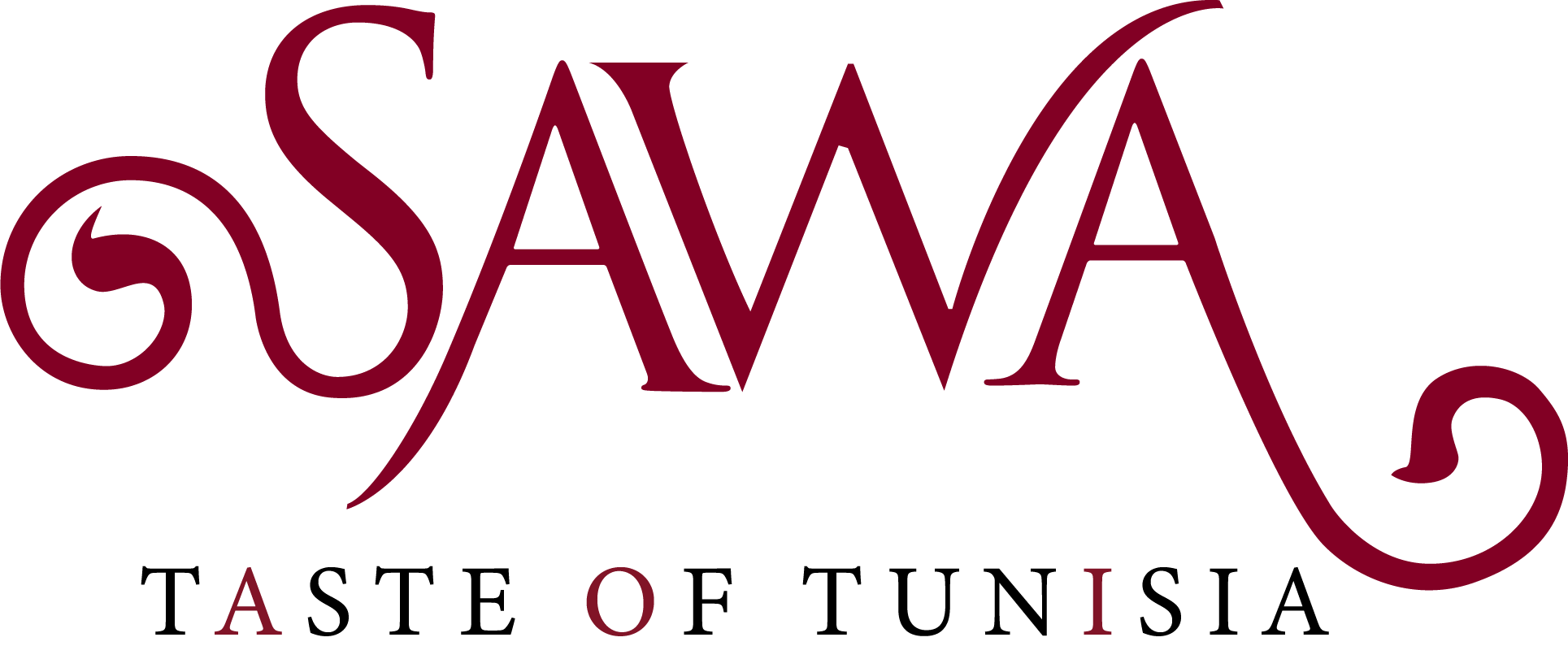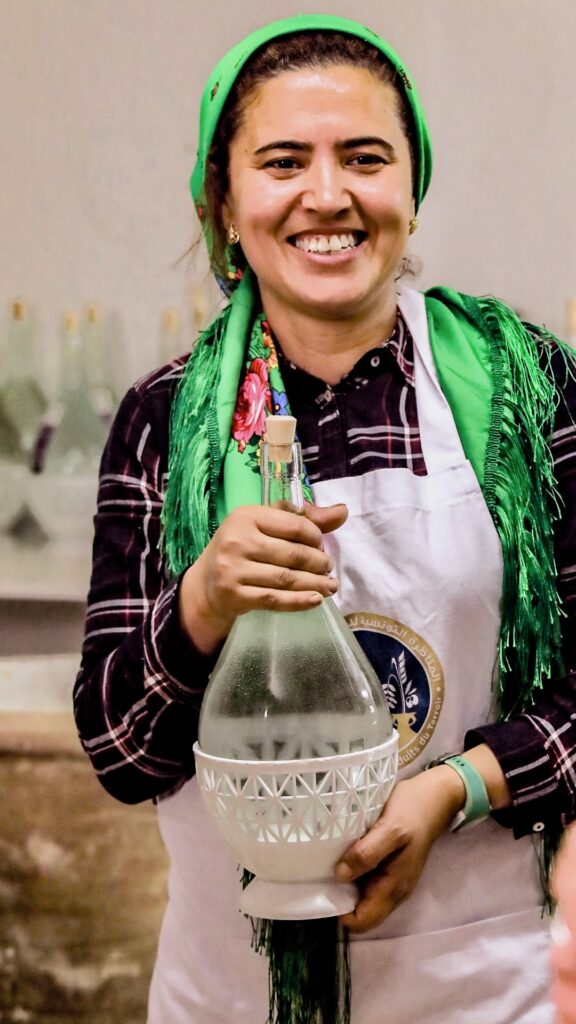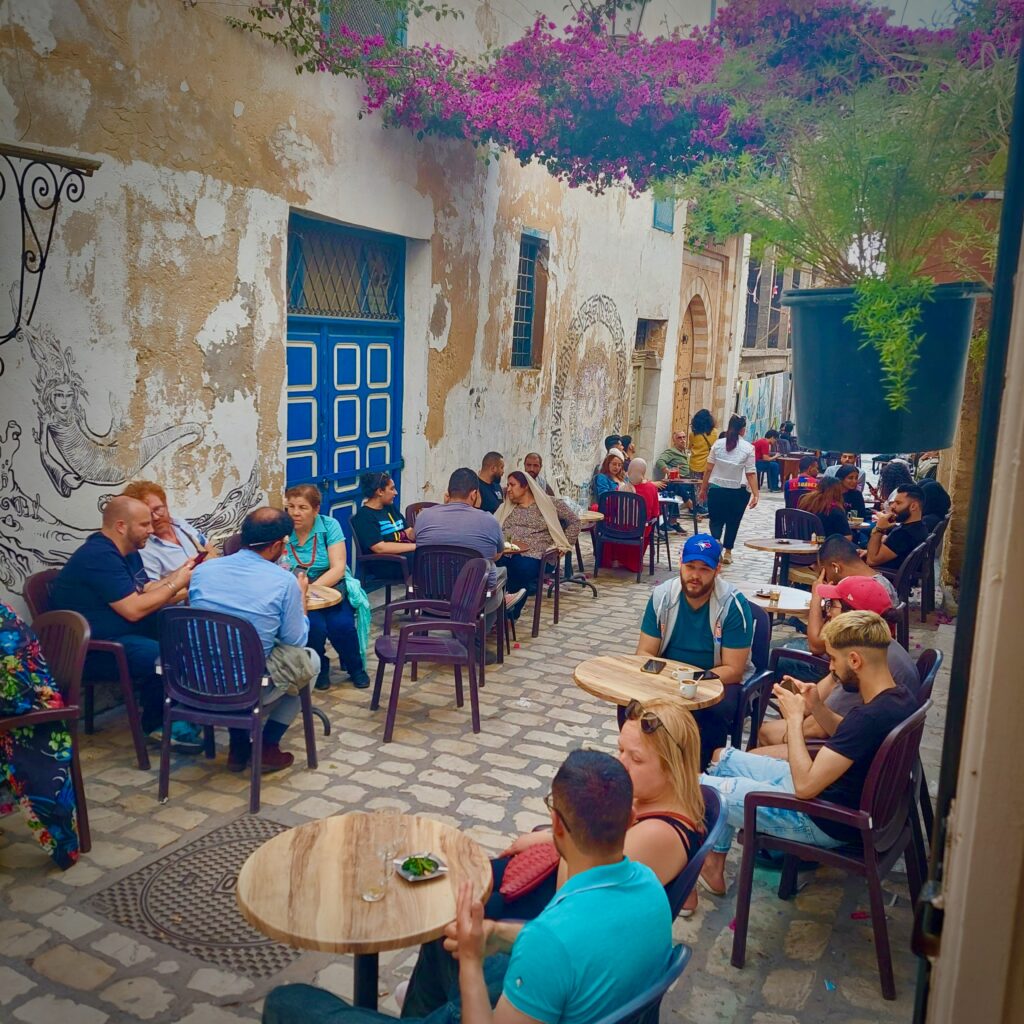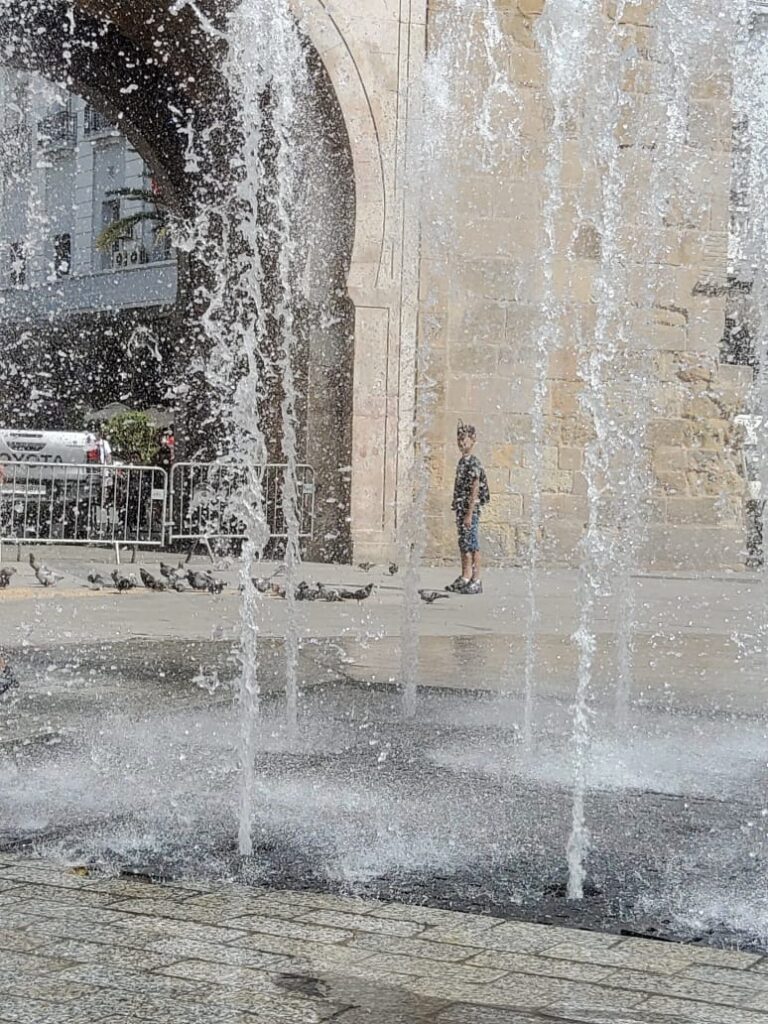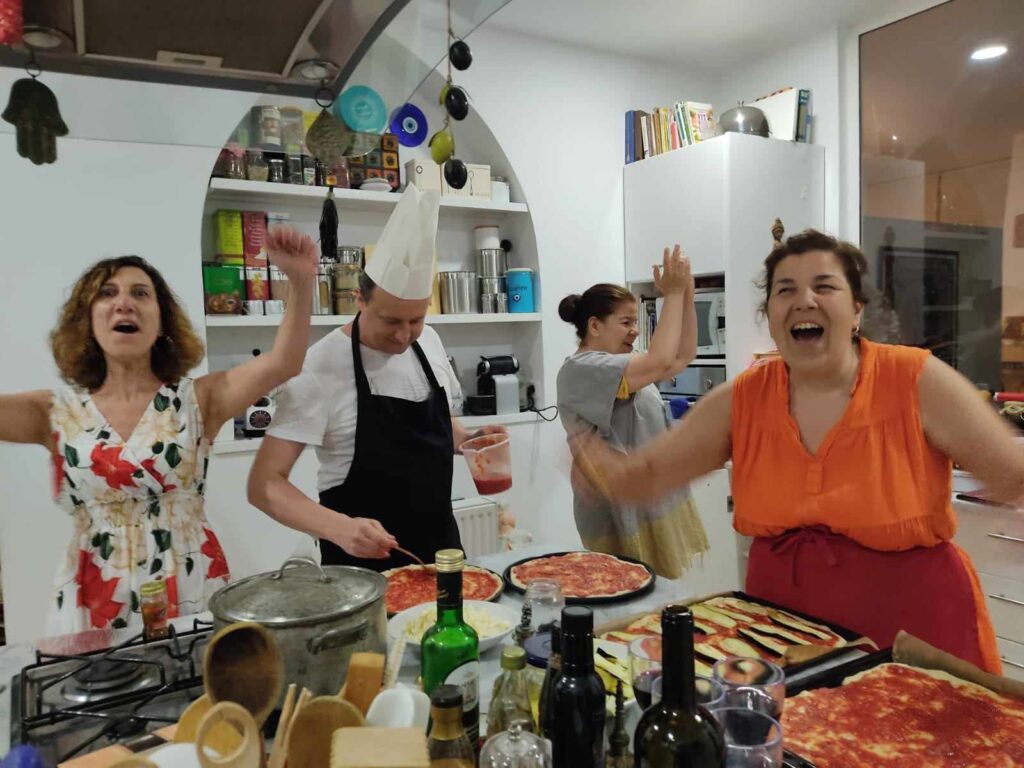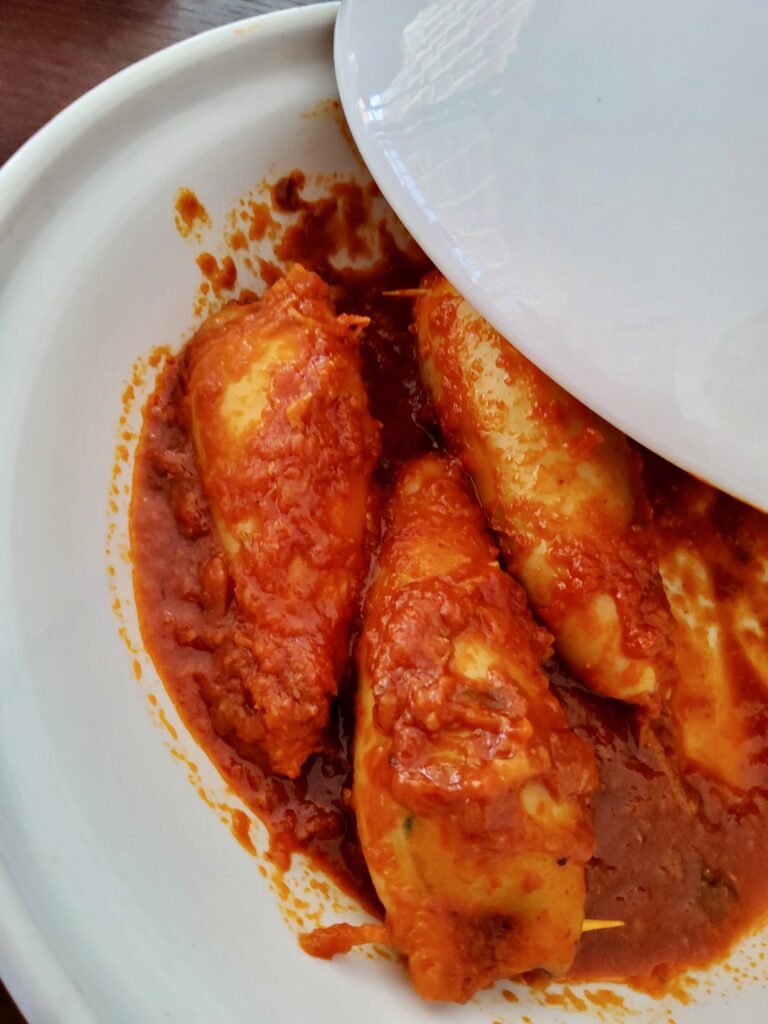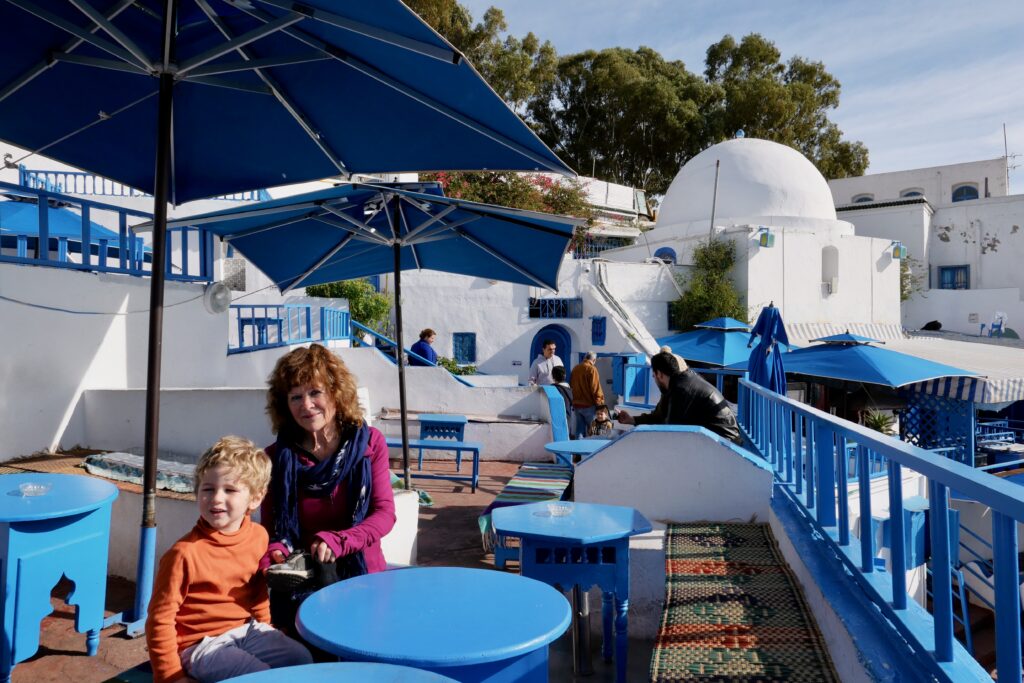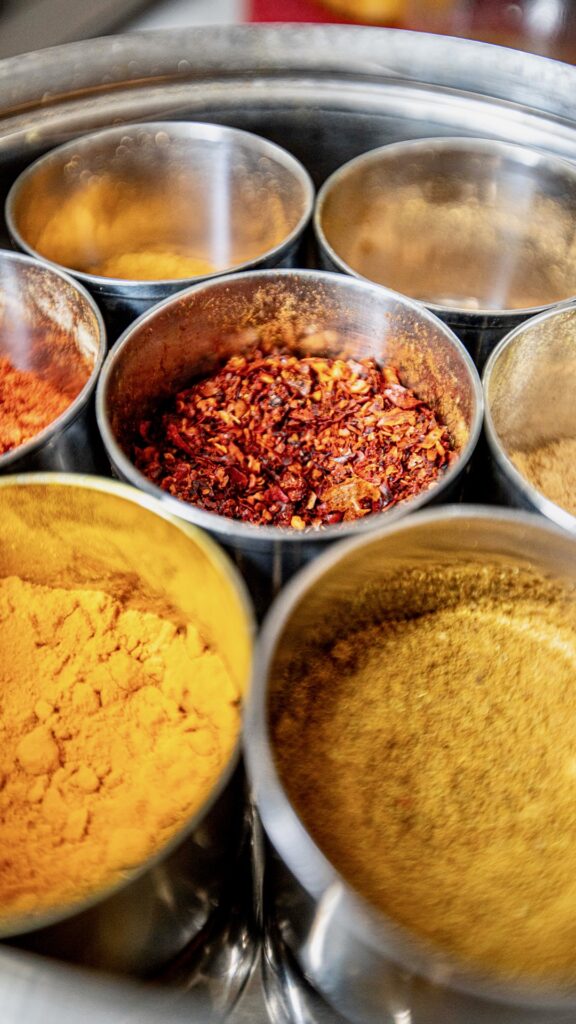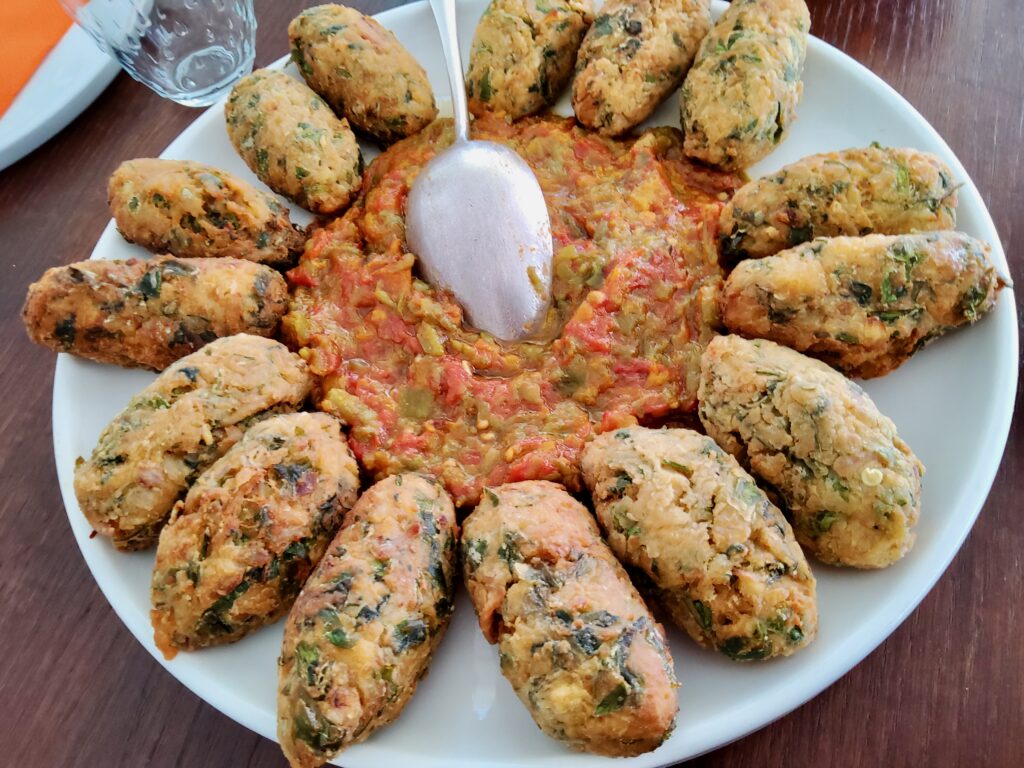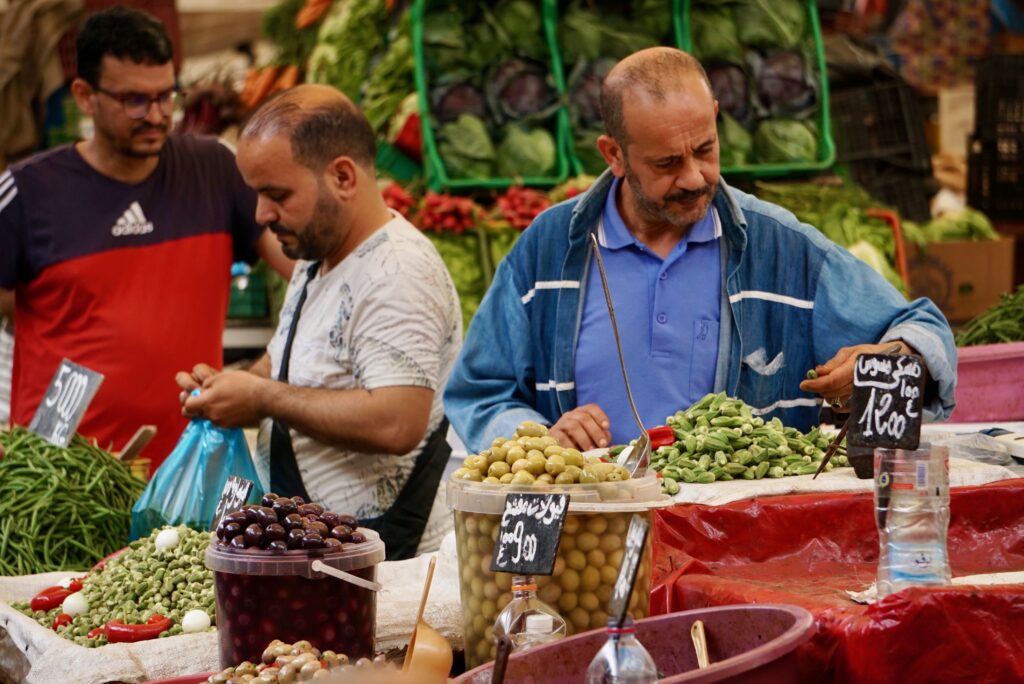Flânerie gourmande
8 days/7 nights
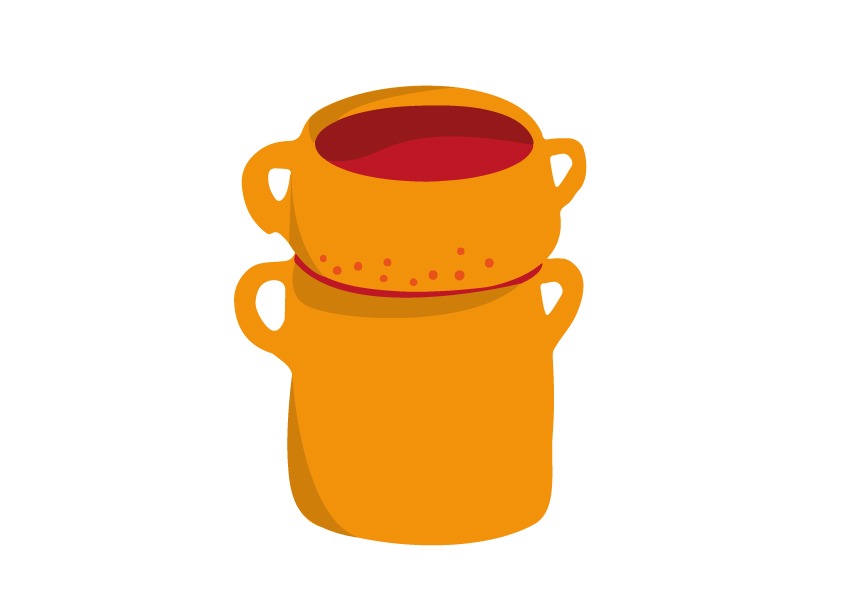
Dates : On request between September and June
Immerse yourself in the flavors and aromas of the country with our most emblematic tour. During your stay, you'll explore three different regions, discover typical dishes, products, and local wines, take part in several cooking classes, and experience dine in some of our favorite tucked-away restaurants. Accommodation is with Lamia in her rural homestead, and a beautifully restored home in the narrow streets of historic Tunis. You'll also have plenty of free time to take in the sights, stroll through the countryside or wander through the souq.
The itinerary may vary according to the season and the availability of our partners, as we adapt to the rhythm of local artisans and producers.
Day 1 - Welcome to Tunisia!
After being met at the airport by Lamia, you'll travel with Lamia to her farmhouse in the Cap Bon, where you'll stay for the first few days. A promontory located in the north-east of the country, the Cap Bon is a vast garden, already cultivated with vines, olives and fruit trees in the 4th century BC, according to Diodorus of Sicily. The landscape of plains and rolling hills, citrus orchards, vegetable plots and vineyards, has a wonderful Mediterranean feel. Enjoy the bucolic atmosphere and, if you arrive early in the day, a cooking workshop in the afternoon, before dinner cooked by Lamia.e siècle avant notre ère, selon Diodore de Sicile. Les paysages révèlent une alternance de plaines et de montagne, de vergers d’agrumes, de cultures maraichères et de viticulture, aux couleurs méditerranéennes. Vous profiterez de l’ambiance bucolique et, si vous arrivez tôt dans la journée, d’un atelier de cuisine dans l’après-midi, avant de prendre le repas du soir.
Day 2 - Essential kitchen provisions
After a typical Tunisian breakfast with fresh produce from the farm and surrounding area, we hit the road for a day discovering some of the most indispensable products in the Tunisian larder, starting with harissa. This seasoning, made from crushed red chillies, is served with almost every meal, and is recognized as a facet of the country’s “intangible cultural heritage” by UNESCO. You'll learn how it is prepared and have the chance to taste several varieties.
After lunch, the afternoon will be devoted to floral waters. The distillation of aromatic flowers and herbs - rose, orange blossom, geranium, thyme, rosemary, mint etc. - is practiced in almost every household in the Nabeul region in spring. The wonderful aromas are used to flavor drinks as well as sweet and savory dishes, and to treat ailments and perform rituals, such as welcoming visitors by sprinkling fragrant water on their head or hands. In the evening, a vegetarian dinner, prepared by an exceptional female chef, will be served in her beautifully restored home.
Day 3 - Mlawi, Malsouka and Méchoui: three essential Tunisian dishes
After an Arbi breakfast (literally “Arab”, meaning rustic), we’ll learn how to prepare Mlawi, a flaky pan-cooked flatbread. Often eaten in the morning, it is an emblem of Tunisian street food, as it is perfect for making wraps that are easy to carry oreat while standing. At the end of the morning, we'll set off on foot, by bike or by donkey-cart to visit a nearby vineyard for a cellar tour, wine tasting, and barbecue lunch (méchoui) among the giant aging tanks. The site and the theme of grape cultivation in general open a window on the country's Roman and colonial past, and the ongoing relevance of that history to contemporary Tunisia.
Back at the farm, you'll Malsouka: Malsouka in Lamia's Malsouka: Malsouka is a very thin pastry, like filo, used in a wide range of dishes, both savory and sweet, of which the most famous the triangular brik, a pastry stuffed with potatoes, egg, and tuna, which is an essential speciality during the holy month of Ramadan. Dinner will consist of the food you will have prepared with Lamia during the workshop.
Day 4 - Fondouk and souks of Tunis
This morning, we head for the capital, with its whirlwind of activities, colors, aromas and spices. Our day begins with a visit to the Fondouk El Ghala, or “Hotelof Fruit” in literal translation, more commonly known as the Central Market. A colonial construction (dating from 1891) that blends Art Deco and “Moorish” styles, the market houses one of the largest and surely most atmospheric fish markets of the entire Mediterranean. Guided by a chef who has bought fresh produce for his family restaurant at the market daily for over twenty years, the tour is filled with tastings, anecdotes, and insider tips on how to choose the freshest produce.
Having essentially eaten lunch on the move through the market, we take a break for a glass of mint tea in a cafés straight out of the 1,001 nights before wandering some more through the narrow streets of the Medina, in particular the herb and aromatic plant stalls. We reconvene with the chef and his family in their restaurant in the late afternoon for a cooking class using produce bought together that morning at the market. Dinner will consist of your own outstanding culinary creations. It is a short wander to the charming historic guest house where you will be staying for the next few days.
Day 5 - Ancient olives
Today is devoted to an excursion to a farm and olive grove located west of the capital, near Tebourba. We’ll visit the the olive oil mill that belongs to the farm owner’s extended family, where granite millstones are still used, and taste different oils. Depending on the season, we can also take part in picking olives or tending the olive trees. In the afternoon, you will have the opportunity to explore your hosts’ permaculture vegetable garden and pick a few fresh ingredients for the evening meal, which we will prepare together in farmhouse kitchen.
Day 6 - Sidi Bou Saïd and La Goulette, or cosmopolitan Tunis
On day 6, we head to some of thee the capital city’s northern neighborhoods, starting with Sidi Bou Saïd. The exceptional charm and magnificent hilltop location of this white-and-blue village, named for the Sufi saint whose Zawiya is located there, has attracted countless European intellectuals and artists since the 19th century, including André Gide, Colette, Michel Foucault, Paul Klee,e or the Baron d'Erlanger, an eccentric artist and musicologist, whose strange and magnificient Orientalist palace we will visit. After enjoying a cup of tea accompanied by a Bambalouni—a fried pastry whose name is an Italian loan-word,—we continue the theme of the historic cultural cosmopolitanism of Tunis with a fresh fish lunch in La Goulette. This nostalgic seaside neighborhood where actress Claudia Cardinale grew up was long a place of harmonious coexistence between Italians and Maltese Christians and Jewish and Muslim Tunisians.
In the afternoon, we have planned a wine tasting at Montfleury, one of the first wineries to be built under the French protectorate, which is undergoing a revitalization and opening up to the international market under the influence of a young oenologist.
Day 7 - A day to wander
We've put together an "open" program for this final day. The morning is free for some shopping in the souk, a cultural visit to the Bardo Museum or the Roman ruins of Carthage, relaxation in a hammam, or an Arabic calligraphy class—the choice is yours. For lunch, we’d like to take you to one of our favorite little restaurants in the Medina, whose owner is an avid cyclist and serves a tiny number of specialties like barley couscous with roasted chillies. In the afternoon, we usually head to the workshop of an artisan-musician Stambeli, un genre musical et un rite de possession aux origines africaines. Pour le dernier dîner, ce sera un restaurant chic d’inspiration italo-française de la capitale.
Day 8 - Departure
Your culinary journey is coming to an end. After breakfast, or lunch, depending on your flight time, you'll be accompanied to the airport for your departure.
Participants: 2 people minimum, 8 people maximum
Price (We accept EUR, CAD, USD, and TND)
- 2 people: €3,200 per person
- 4 people: €2,700 per person
- 6 people: €2,300 per person
- 8 people: €2,100 per person
Included
- Transfers and ground transportation in Tunisia
- Accommodation
- Meals and snacks
- Visits, workshops, classes, tastings and activities
- All ingredients and equipment for classes and workshops
- Wines at tastings
Not included
- Flights
- Personal travel insurance (cancellation, health, etc.)
- Tips, should you wish to leave any
- Alcoholic beverages you wish to consume during your stay (other than wine tastings)
- Optional additional activities you choose to take part in, particularly on day 7 of the tour (hammam, museum visit, etc.).e jour du parcours (hammam, visite de musée, etc.)
